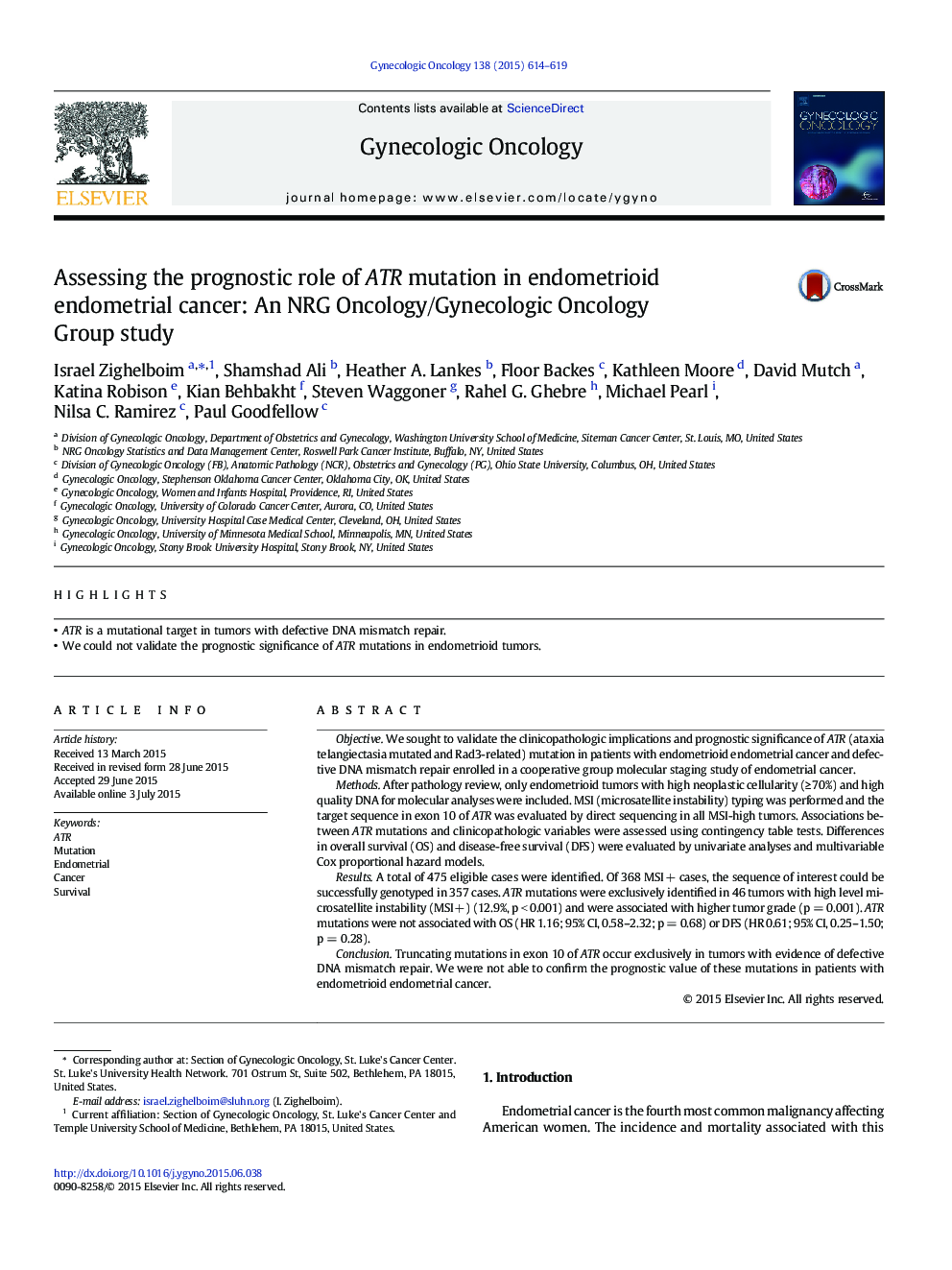| Article ID | Journal | Published Year | Pages | File Type |
|---|---|---|---|---|
| 3942659 | Gynecologic Oncology | 2015 | 6 Pages |
•ATR is a mutational target in tumors with defective DNA mismatch repair.•We could not validate the prognostic significance of ATR mutations in endometrioid tumors.
ObjectiveWe sought to validate the clinicopathologic implications and prognostic significance of ATR (ataxia telangiectasia mutated and Rad3-related) mutation in patients with endometrioid endometrial cancer and defective DNA mismatch repair enrolled in a cooperative group molecular staging study of endometrial cancer.MethodsAfter pathology review, only endometrioid tumors with high neoplastic cellularity (≥ 70%) and high quality DNA for molecular analyses were included. MSI (microsatellite instability) typing was performed and the target sequence in exon 10 of ATR was evaluated by direct sequencing in all MSI-high tumors. Associations between ATR mutations and clinicopathologic variables were assessed using contingency table tests. Differences in overall survival (OS) and disease-free survival (DFS) were evaluated by univariate analyses and multivariable Cox proportional hazard models.ResultsA total of 475 eligible cases were identified. Of 368 MSI + cases, the sequence of interest could be successfully genotyped in 357 cases. ATR mutations were exclusively identified in 46 tumors with high level microsatellite instability (MSI +) (12.9%, p < 0.001) and were associated with higher tumor grade (p = 0.001). ATR mutations were not associated with OS (HR 1.16; 95% CI, 0.58–2.32; p = 0.68) or DFS (HR 0.61; 95% CI, 0.25–1.50; p = 0.28).ConclusionTruncating mutations in exon 10 of ATR occur exclusively in tumors with evidence of defective DNA mismatch repair. We were not able to confirm the prognostic value of these mutations in patients with endometrioid endometrial cancer.
